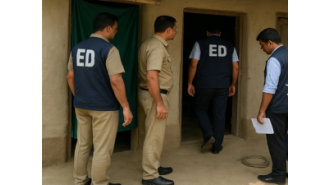A Resilient Grid
During Hurricane Sandy, all of lower Manhattan lost power for several days when a transformer blew at a ConEd plant on 14th Street.
Driving around lower Manhattan at night in the aftermath of Sandy was one of the strangest moments I’ve experienced as a NY’er. The traffic lights didn’t work and everything was pitch black.
Except NYU. As you approached Washington Square the city lit up again. That is because NYU has its own power plant, a cogeneration facility next to NYU’s Courant Institute.
Similarly, when the west side of Manhattan went dark a few weeks ago in what is turning into a summer of blackouts, everything was pitch black except the new Hudson Yards development. That’s because on the top of the Hudson Yards Shopping Mall, there is a massive cogeneration facility that powers all of buildings in that development.
So when I heard Mayor de Blasio ruminating over the weekend about a government takeover of ConEd, I thought to myself “he’s got it all wrong.”
We don’t need more centralized control of our power grid, we need a more decentralized power grid.
NY State has been pushing in this direction for years now under the leadership of Richard Kauffman, Chairman of the New York State Energy Research and Development Authority (NYSERDA). The state has deregulated the energy markets, they have created substantial incentives for property owners to build out renewable (solar/battery/etc) capacity in their buildings, and they have put forth a vision of an energy grid that is not reliant on any one entity to stay up.
Back in the 1960s when the Department of Defense designed ARPANET, the precursor to the modern Internet, they designed a network that was entirely decentralized and therefore massively resilient (anti-fragile in Nassim Taleb speak).
That should be our goal with our energy grid as well. We should want energy production and consumption to happen at the edges of the network and we should want redundancy in the cables that connect everything together.
We aren’t there today and it will take a lot of work over many years to get there. But that should be our goal.
And we certainly should not be putting our energy system into the hands of a centralized and bureaucratic government. That would lead to more blackouts, not less.






